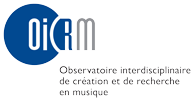The current study sheds light on the reception of 24 Préludes by François Dompierre, created by Alain Lefèvre on 14 July 2012 at Amphithéâtre Fernand-Lindsay of the Festival de Lanaudière. The evening, devoted to the discovery of a new work and the celebration of Quebec new music, was disrupted in the first half of the concert by applause from some parts of the audience, who felt justified in so doing by the virtuosity of the artist, even though the organizers of the Festival had requested to applause only at the intermission and at the end. In doing so, one of the strongest conventions of listening to classical music in concert (i.e., the idea of applauding only at the end of a work) became a source of social tension between those who wanted to applaud after each prelude and those who insisted on silence. In the end, silence was re-established after the eighth prelude, but only by resorting to the use of authority, which the author discusses in detail in order to understand the implications for the concert, the cultural scope and the historical dimension of such a situation. As a result, the very act of listening to a concert is called into question in terms of its aesthetic purpose. Moreover, the festival context for which Dompierre created the work must be taken into account for its relaxed listening atmosphere, providing the possibility for dissension between opposing values. For this reason, the study is ideally suited to the field of sociomusicology, a discipline that can analyze the fundamental conventions and the customs of our relationship to music, while highlighting the historical context of cultural acts such as listening to classical music.
Also available on Érudit
A shorter version of this paper was published in Le Devoir :








